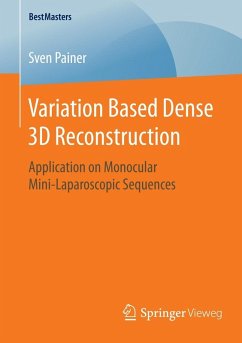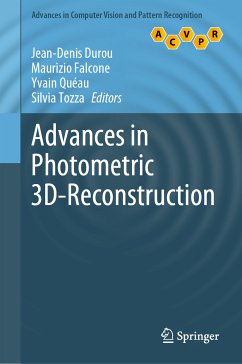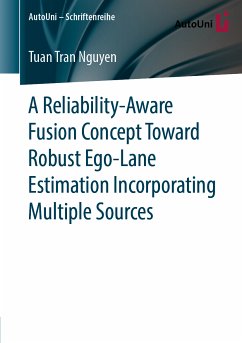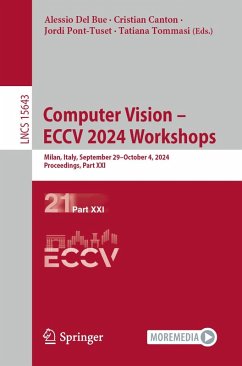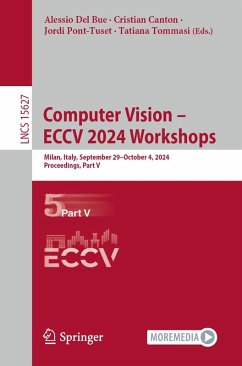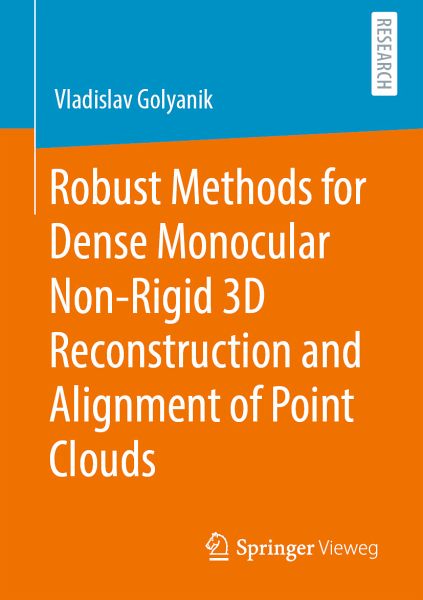
Robust Methods for Dense Monocular Non-Rigid 3D Reconstruction and Alignment of Point Clouds (eBook, PDF)
Versandkostenfrei!
Sofort per Download lieferbar
73,95 €
inkl. MwSt.
Weitere Ausgaben:

PAYBACK Punkte
37 °P sammeln!
Vladislav Golyanik proposes several new methods for dense non-rigid structure from motion (NRSfM) as well as alignment of point clouds. The introduced methods improve the state of the art in various aspects, i.e. in the ability to handle inaccurate point tracks and 3D data with contaminations. NRSfM with shape priors obtained on-the-fly from several unoccluded frames of the sequence and the new gravitational class of methods for point set alignment represent the primary contributions of this book. ContentsScalable Dense Non-rigid Structure from MotionShape Priors in Dense Non-rigid Structure f...
Vladislav Golyanik proposes several new methods for dense non-rigid structure from motion (NRSfM) as well as alignment of point clouds. The introduced methods improve the state of the art in various aspects, i.e. in the ability to handle inaccurate point tracks and 3D data with contaminations. NRSfM with shape priors obtained on-the-fly from several unoccluded frames of the sequence and the new gravitational class of methods for point set alignment represent the primary contributions of this book.
Contents
- Scalable Dense Non-rigid Structure from Motion
- Shape Priors in Dense Non-rigid Structure from Motion
- Probabilistic Point Set Registration with Prior Correspondences
- Point Set Registration Relying on Principles of Particle Dynamics
Target Groups
- Scientists and students in the fields of computer vision and graphics, machine learning, applied mathematics as well asrelated fields
- Practitioners in industrial research and development in these fields
About the Author
Vladislav Golyanik is currently a postdoctoral researcher at the Max Planck Institute for Informatics in Saarbrücken, Germany. The current focus of his research lies on 3D reconstruction and analysis of general deformable scenes, 3D reconstruction of human body and matching problems on point sets and graphs. He is interested in machine learning (both supervised and unsupervised), physics-based methods as well as new hardware and sensors for computer vision and graphics (e.g., quantum computers and event cameras).
Dieser Download kann aus rechtlichen Gründen nur mit Rechnungsadresse in A, B, BG, CY, CZ, D, DK, EW, E, FIN, F, GR, HR, H, IRL, I, LT, L, LR, M, NL, PL, P, R, S, SLO, SK ausgeliefert werden.




